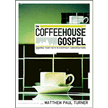His heart is with us
Sunday, November 30, 2008 Have you ever been the guest at a holiday dinner where you weren't sure you were welcome? You try to sneak a glance at the wealthy host to gauge his attitude, but he seems to be avoiding looking directly at you. His greeting was friendly enough, but was it a little forced? And neither he nor any of his close friends are urging you to take seconds or making sure your glass stays filled. You ask yourself, "What am I doing here?" and you start to squirm and sweat.
Have you ever been the guest at a holiday dinner where you weren't sure you were welcome? You try to sneak a glance at the wealthy host to gauge his attitude, but he seems to be avoiding looking directly at you. His greeting was friendly enough, but was it a little forced? And neither he nor any of his close friends are urging you to take seconds or making sure your glass stays filled. You ask yourself, "What am I doing here?" and you start to squirm and sweat.
This verse from Solomon comes to mind:
Do not eat the food of a stingy man, do not crave his delicacies; for he is the kind of man who is always thinking about the cost. "Eat and drink," he says to you, but his heart is not with you. --Proverbs 23:6-7.
Every time we share in the Lord's Supper, we are guests of a wealthy host. At this dinner, however, we never have to wonder whether we are wanted or whether our host "is always thinking about the cost." He has gone through the great storehouses of heaven, and out of "His abundant riches," He has found the greatest treasure he had and then gave it to us as a present.
That's what Paul says in Romans 8:32:
He who did not spare his own Son, but gave him up for us all--how will he not also, along with him, graciously give us all things?
Receiving this greatest of treasures, Jesus Christ our Savior, gives us confidence that we are welcome at the Lord's table, that He has truly accepted us, and that, in contrast to Solomon's scenario, "His heart is with us."
Want to Go Deeper?
Recommended for purchase (at discount)
John Mark Hicks. Come to the Table: Revisioning the Lord's Supper Leafwood, 2002. – From all we can glean, early Christian practice of the Lord's Supper was radically dissimilar from the the silent, solemn, individualistic eating of bread crumbs and drinking sips of wine that many churches practice today. Hicks asserts that our practice of the Supper should be a joyous communal meal as it was then. He advocates "revisioning" our contemporary practice of the Supper according to biblical values. Combining careful Bible study with gentle, practical suggestions, this book provides a valuable resource for enriching and renewing a central practice of Christian faith.
Greg Allen & Dennis Kaufman. Come to the Table: 52 Meditations for the Lord's Supper. Heartspring, 2007. – Often the prelude to communion is repetitive or lacks creative and meditative thought. Come to the Table was written to help orient your thoughts and offer ideas in order to promote a reflective time of self-evaluation. Allen and Kaufman offer a full year of communion meditations that will nourish your hungering spirit.
Lee Magness. The Longest Table: 52 Meditations for Communion. Standard, 2007. – The Lord's table stretches around the world, unifying all who remember and have been changed by Christ's death and resurrection. Use the 52 meditations in this book at the Lord's table, or whenever you want to remember the sacrifice of Christ.
Recommended for online reading
Josephine Fletcher with preface by C. J. Ellicott. Prayers & Meditations for the Holy Communion. New edition. Rivingtons, 1875.
Philip L. Barclift. "Uniting in Christ at the Lord's Table". Encounter, Spring 2004. – In-depth discussion of the tension Disciples of Christ have experienced between their call for Christian unity and their concern that "open communion" may debase the Lord's Supper.
Steve Singleton, DeeperStudy.com
Labels: christocentric, communion, confidence, eucharist, god's gift, last supper, lord's supper, reassurance

